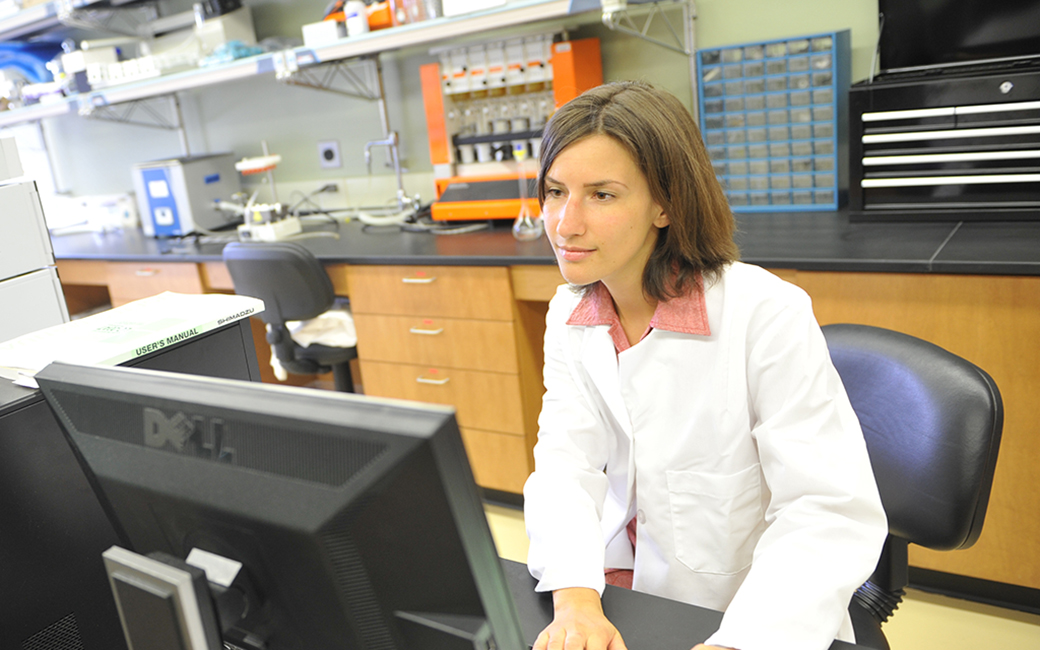Nicole Hartig
Major: Chemistry

Why did you choose chemistry as your major?
In high school I knew I wanted to go into the sciences but I wasn't sure I wanted to major in chemistry. My college career began by taking a smattering of science courses at a community college (physics, astronomy, archaeology, biology). I then decided to major in environmental science and have since added a chemistry major as well. My long-term goal is to attain a Ph.D. in environmental toxicology.
What are the most important lessons you have learned from chemistry?
Everything is cumulative. You need to understand that the concepts you are learning do not end with a test or a final exam. I've used a lot of concepts from general chemistry in many upper-level courses, including environmental chemistry.
Which class have you most enjoyed?
It's a tie between environmental toxicology and environmental chemistry. In these courses I was challenged to incorporate information and concepts I had learned in a wide range of previous classes to analyze complex scenarios. These classes were like putting together a jigsaw puzzle. If you have all of the pieces and can find a logical system to efficiently put them together, completing the puzzle is a breeze and a lot of fun at the same time!
What are some of the challenges of being a chemistry major?
When you start out, all of the material seems really difficult. But you have to get a firm grasp on these basic concepts. Soon you find that everything builds upon what you have already learned. Eventually you come to a point where you can look back and realize how simple it was in the beginning. Just getting to that point, that place where you can look back on the “easy stuff,” is a challenge in and of itself.
“ Everything is cumulative. You need to understand that the concepts you are learning do not end with a test or a final exam. ”